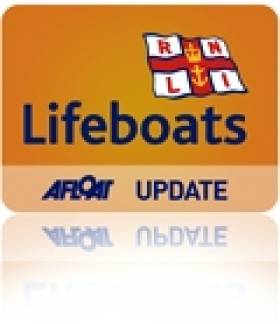Displaying items by tag: Paul Boissier
Lifeboats Chief Visits Donaghadee, New Lifeboat for Arklow
#RNLI - Donaghadee lifeboat station was delighted yesterday (7 March) to welcome RNLI chief executive Paul Boissier, who was on a two-day visit to the Northern Ireland division.
Operational and fund raising volunteers crowded into the station to meet Boissier, who thanked them for coming out so early on a cold and wet morning.
While sitting enjoying the hospitality of the station, Boissier listened to the views of both crew and fundraisers on a wide range of topics. He said he was delighted to be in such a beautiful part of Northern Ireland and could not help but be impressed with the enthusiasm of all the volunteers.
He praised and thanked them for their commitment to the RNLI while remembering the support from the local community, and went on to say that the commitment of the operational volunteers supported by all at the station made the sea around the local coastline that much safer for everyone.
Meanwhile, Arklow RNLI was delighted to welcome the charity's newest lifeboat Kiwi and her volunteer crew to Arklow Harbour on Monday evening.
Prior to arriving in Arklow, the Tamar class lifeboat – which features the latest in search and rescue technology – had visited Torbay, St Mary’s on the Scilly Isles, Falmouth and Rosslare on her passage home to Wales. The weary crew arrived in Arklow after more than eight hours at sea.
The new vessel is a replacement station boat for Moelfre and replaces a Tyne class lifeboat similar to the one stationed at Arklow's flank RNLI station in Wicklow.
Kiwi was funded from a bequest by Reginald James Clark, a New Zealander who had been rescued by an RNLI lifeboat during World War II.
The crew from Moelfre was welcomed by Arklow RNLI's crew, fundraisers and station management along with members of the public.
Following her overnight stay in Arklow, she departed at 8.30am on Tuesday morning for her new home at Moelfre.
























































